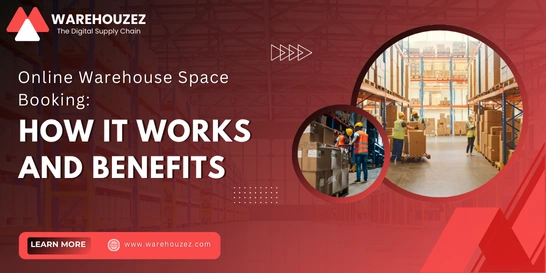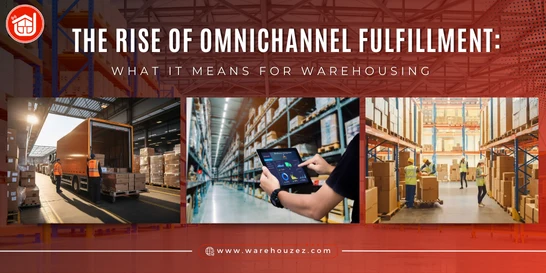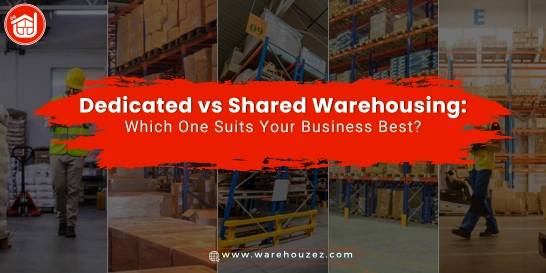Contract Logistics vs. 3PL: Which Is Better For Your Business?
Contract Logistics vs. 3PL: Which Is Better For Your Business?
When it comes to outsourcing logistics, businesses often have to choose between contract logistics and 3PL. Both models help companies streamline their supply chains and reduce costs. But they differ in terms of their scope and service offerings. Nonetheless, each of these logistics models comes with its own set of benefits and challenges. The best choice depends on your specific business needs and operational goals.
Contract logistics and 3PL are growing rapidly with the rise of e-commerce and consumer expectations. According to industry reports, the global contract logistics market is expected to reach $342 billion by 2026, while the 3PL market is projected to surpass $1 trillion by 2027. With this substantial growth, choosing between these two logistics services can impact your business operations.
Let’s break down what each service entails and how they differ. So, let's get started!
What is Contract Logistics?
Contract logistics refers to a long-term partnership where a company outsources its transportation related operations to a specialized provider. Basically, a contract logistics company is similar to a freight forwarder. Instead of handling inventory, they focus on managing the movement of goods. They can arrange transportation, assist with customs clearance, and optimize routes. They specialize in ensuring the smooth flow of goods from one point to another.
These providers often work closely with companies to develop customized solutions that cater to specific logistics challenges. Contract logistics is certainly beneficial for businesses with predictable demand patterns that require ongoing support.
With the expansion of e-commerce, contract logistics has evolved to help companies deal with complex operations. With ever-changing consumer demands, businesses need efficient logistics solutions to ensure quick deliveries.
What is Third-Party Logistics (3PL)?
Third-party logistics (3PL) is a broader outsourcing model. Here, companies rely on external providers to handle a full range of supply chain operations. While contract logistics focuses on transportation and route optimization, 3PL companies offer much more than just transportation. 3PLs provide a full suite of services, including warehousing, inventory management, shipping, and order fulfillment.
One of the primary benefits of 3PL is the flexibility it offers. Businesses can choose which services they need based on their current demands. This makes it an ideal option for companies experiencing seasonal peaks. 3PL providers act as intermediaries, managing the entire logistics process from start to finish. This hands-off approach allows businesses to focus on growth, while their logistics operations are handled by experts.
For instance, an online retailer might use a 3PL service provider to manage not just the shipping of orders, but also the warehousing and inventory tracking. This helps improve order accuracy, reduces lead times, and ensures that products reach customers on time. With its all-inclusive approach, 3PLs enable businesses to scale up quickly and respond to customer demand more effectively.
Contract Logistics vs. Third-Party Logistics (3PL): What's the Difference?
Many people often get confused between contract logistics and 3PL logistics. These two concepts share some similarities, but they differ in their scope and services.
Let's take a look at these key differences to help you make the right choice for outsourcing:
Range of Service Offerings -
Contract logistics mainly specialize in transportation and route optimization aspects of the supply chain. Their goal is to streamline the supply chain for clients by managing the movement of cargo. In contrast, 3PLs provide a wide range of services beyond transportation. This includes warehousing, inventory management, order fulfillment, and reverse logistics.
For example, a manufacturer can use contracted logistics services to manage consistent deliveries to retailers. While, a growing e-commerce business might opt for 3PL to handle everything from storage to delivery for its expanding customer base.
Degree of Customization/Personalization -
The contract-based model focuses on long-term and tailor-made logistics services. These service providers work closely with businesses to create customized strategies that align with specific operational needs. Contrarily, 3PLs provide standardized services so that businesses can easily scale up or down depending on their needs. However, 3PL companies also offer some level of customization in terms of service options.
Level of Commitment -
As the name suggests, contract logistics involves a long-term commitment with multi-year contracts. It is ideal for businesses looking for stability and deep integration with their supply chain. Conversely, 3PLs are often more flexible with short-term agreements. This allows businesses to switch providers or adjust services based on changing needs.
Pricing Structure -
The contract-based model includes higher upfront costs due to the degree of customization and the long-term nature of the partnership. However, it can result in lower overall costs due to optimized supply chain processes. 3PLs tend to have a pay-as-you-go structure, which is more affordable in the short term, especially for businesses with fluctuating demand.
For example, a food and beverage company expanding its operations might choose contract logistics for long-term cost savings. But a startup in the cosmetics industry might use 3PL to handle spikes in order volume during promotions.
Which is the Better Outsourcing Option for Your Business?
Choosing between contract logistics and 3PL certainly depends on your business needs and goals. Both models can help streamline operations, but each has benefits in different scenarios.
Scenarios Where Contract Logistics is Better
Businesses with predictable and stable demand that require ongoing logistics support.
Companies with complex transportation needs, such as specialized shipping services.
Organizations looking for a long-term partnership with involvement in their supply chain.
Scenarios Where 3PL is Better
Small to medium-sized businesses that need cost-effective, flexible, scalable, and on-demand logistics services.
Online businesses dealing with seasonal fluctuations in order volume.
Startups or businesses experiencing rapid growth that need to scale quickly.
Questions to Ask Before Choosing Between Contract and Third-Party Logistics
Do you require a long-term and tailor-made logistics solution?
How much control do you actually need over your supply chain?
Are you looking for flexibility in adjusting your logistical operations?
What are your logistics requirements today, and how do you expect them to change in the future?
By asking and answering these questions, you can easily figure out which model suits your business needs the best.
Concluding Remarks
The choice between contract logistics and 3PL is clearly not a one-size-fits-all decision. Contract logistics is for businesses that require long-terms solutions and high level of integration with their supply chain. On the other hand, 3PL is perfect for those in need of flexible and scalable services to meet changing demands. By evaluating your business’s needs and market conditions, you can choose the logistics solution that helps you optimize operations and achieve success.



